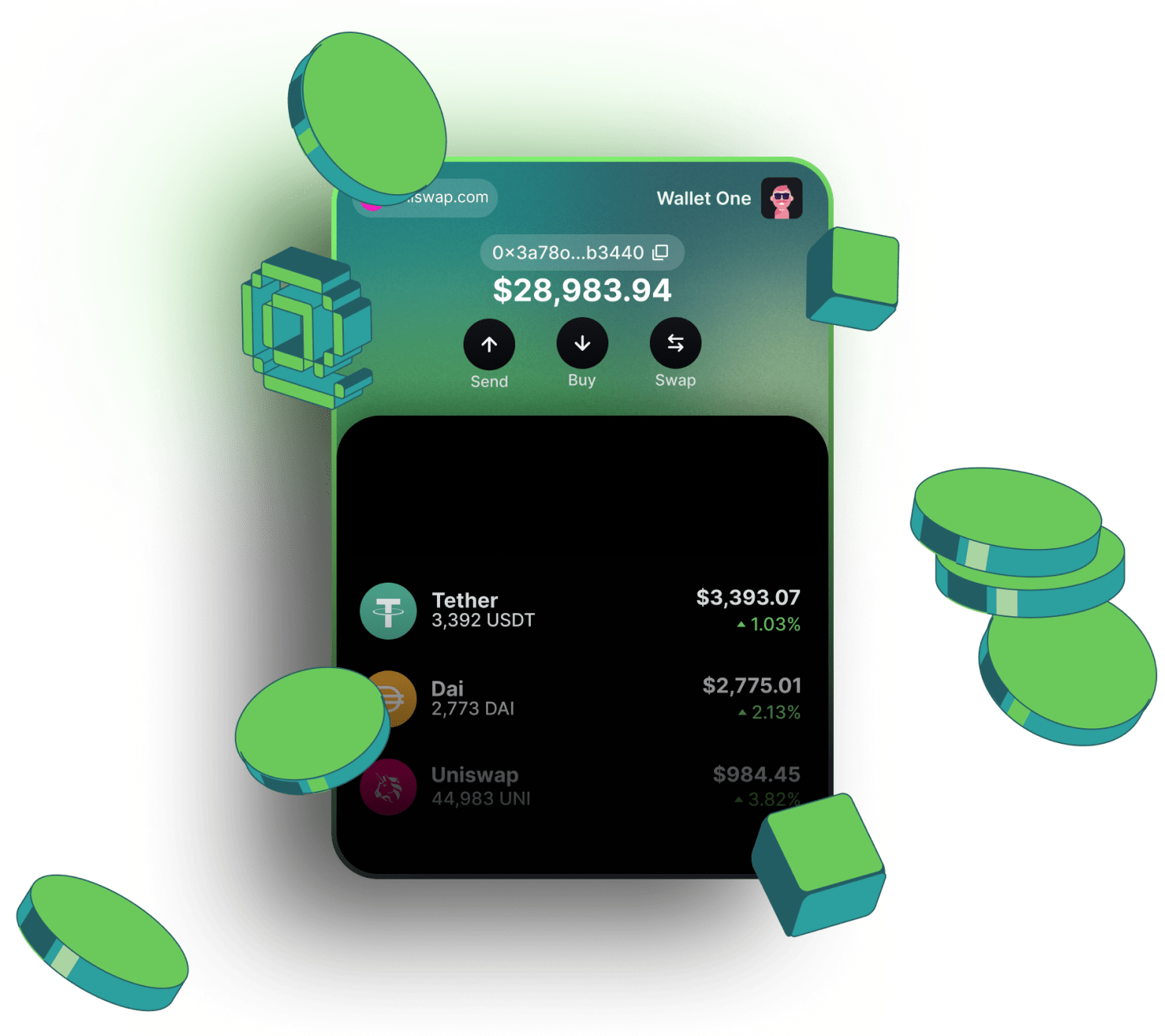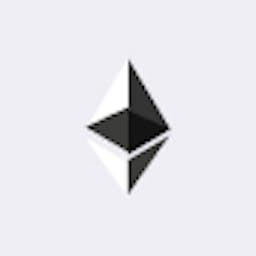Wigwam is the best  BNB chain blockchain crypto wallet
BNB chain blockchain crypto wallet

Why choose the Wigwam crypto app?
Work with BNB chain Testnets and Mainet
Buy BNB chain tokens, including native token, by using a credit card
Swap BNB chain-based tokens directly in the wallet
Possibility to connect the wallet to all Binance (BNB chain) blockchain dAps: DeFi, DAO, Gamings, etc
How to get a BNB chain address in Wigwam web wallet
Create a wallet in Wigwam
Choose a BNB chain network from the dropdown menu
Copy you BNB chain address
BNB chain review
BNB chain is an EVM-compatible, decentralized blockchain that offers high-speed trading, and high-volume transactions and supports smart contracts allowing enterprises and web3 developers worldwide to build and deploy scalable decentralized applications on its network.
Binance continues to solve the problems of the blockchain industry with its innovative solutions such as its Parlia mechanism, its open-source, and decentralized wallet (Trust Wallet), and its BNB chain which is an EVM-compatible, smart contract-supporting chain.
Origins and Vision
Founded in 2017 by Changpeng Zhao, Binance Holding Ltd, branded as Binance, started as a blockchain that is scalable, decentralized, and secure. With the vision of increasing the freedom of money globally and empowering individuals to earn, hold, spend, share, and contribute their money.
Key Milestones
The Binance blockchain and its native token BNB was launched in July 2017. To secure its position early in the market, Binance launched its launchpad and launch pool in the same year for token listing.
The new year started with Binance reaching 6M users in January 2018. To provide more safe and secure services to its users, Binance acquired Trust Wallet, an open-source, anonymous, and decentralized Ethereum Wallet in July 2018.
Binance also acquired WazirX, an Indian-based peer-to-peer cryptocurrency exchange in November 2019. Binance halted withdrawals and deposits on May 7, 2019, as it was hacked and hackers stole 7000 Bitcoin worth around $40M at the time of the breach.
To allow trading without any intervention from third parties, Binance launched its decentralized order-matching engine, ‘Binance DEX’ built on its chain in February 2020.
Binance launched its Binance Smart Chain in September 2020, allowing developers to build and run high-performance decentralized applications, and offering cross-chain compatibility.
Later in the year 2022, both the Binance Chain and Binance Smart Chain merged and BNB Chain was born.
What Consensus Algorithm Does Binance Blockchain Use
Binance BNB Blockchain utilizes the Parlia consensus algorithm, a hybrid mechanism of Delegated Proof-of-Stake (DPoS) and Proof-of-Authority (PoA). This mechanism involves a network of 21 validators and delegators(Delegators vote for the validator of their choice by staking their BNB and sharing the reward, not the risk with the validator).
Validators are selected based on their hardware capability, key skills, reliability, and a minimum stake of 2000 BNB. The top 21 validators, determined by staked BNB, validate blocks daily, while delegators can vote and share in network fee rewards.
How BNB chain has technically solved issues with blockchain scalability and speed
Binance utilizes its architecture and its consensus mechanism to solve the issues of scalability, decentralization, and speed.
BNB Chain provides high-speed transactions, and EVM Compatibility and allows various smart-contract-based applications to run on its ecosystem. Since BNB is a compound of Binance Chain and Binance Smart Chain, it is more scalable, decentralized, and secure.
Parlia, Binance’s consensus mechanism plays an important role in decentralizing and securing its network. Validators are required to satisfy the conditions set by the Parlia mechanism beforehand. Meeting these criteria and staking the required BNB encourages commitment and the possibility of having your staked tokens slashed for malicious behavior encourages validators to act in the favour of the ecosystem.
The Parlia mechanism aims to increase decentralization within its ecosystem by prompting users to delegate and vote for validators through the staking of their BNB tokens. Active participation by delegators enhances the capacity of validators to generate blocks, ultimately boosting transaction speed.
Who are the main players in the Binance BNB Blockchain
In the Binance (BNB) blockchain, the following two roles come into play:
- Validators: These users are responsible for validating transactions, and adding blocks by participating in the consensus mechanism. The top 21 validators in BSC are selected on various factors and play an important role in securing and decentralizing the BNB ecosystem.
- Delegators: Delegators stake BNB and vote for validators, and in return, they get to earn a share of network fees.
DeFi ecosystem on Binance
DeFi on the BNB chain is enabling new business models, products, and services, challenging the status quo, and reducing costs, risks, and delays. Offering more choices and opportunities to users and developers alike.
Binance (BNB)’s DeFi ecosystem is quite diverse including decentralized exchanges like "PancakeSwap V2", “PancakeSwap V3", "Biswap" and lending protocols like “Venus Protocol”, “Alpaca Finance”, or “dForce” as well as derivatives exchanges such as "Pancake Bunny", "Cream" and "Ellipsis Finance". To participate in the BNB DeFi ecosystem - you need to have a Web3 browser - we recommend using the Wigwam DeFi wallet.
NFTs marketplaces on Binance
NFT Marketplaces on Binance provide the opportunity to create (mint), sell, purchase, bid on, collect, trade, and showcase the NFTs. BNB chain interoperability with Ethereum attracts a broader range of artists and collectors to various markets in Binance’s ecosystem. Some of the famous NFT Marketplaces on Binance are “MOBOX: NFT Farmer”, “PancakeSwap Squad” and “Pancake Protector”. Some of the, also, release NFT crypto tickets on the BNB chain.
Tokenomics and Gas Usage on Binance
BNB, the native token on Binance Blockchain has several utilities as discussed below:
- Transaction Fee: The users transacting in the Binance network are required to pay the transaction fee in BNB. BNB also gets users discounts on its transaction fees on the Binance exchange.
- Staking: Users willing to be Validators, or voting to validators as a delegate have to stake BNB tokens. Validators and Delegates earn BNB in rewards for processing transactions and adding blocks.
- Participation Rights: Having BNB also provides special rights like participation in Launchpad events (IEOs) and voting for community listings on the exchange.
Conclusion
Binance stands as the epitome of the continuous changes and upgrades happening within the blockchain sphere. With its BNB Smart Chain making transactions throughput fast, supporting smart contracts, and various decentralized applications, and offering EVM compatibility. Its Parlia consensus mechanism offers low gas fees and attracts a diverse array of projects including various DEXs, Games, NFTs, and lending protocols. With such diversity, the Binance ecosystem has now scaled to 150M members and continues to invite users, developers, and enthusiasts alike.
FAQ
BNB is the native token of the Binance blockchain used for the gas payment.
To access your account information, transaction details, and other activities on Binance, just enter your public wallet address in the search bar at BNB Smart Chain Blockchain Explorer. This will grant you access to all your account history and transaction specifics.
Utilizing a private crypto wallet for your BNB is the most secure approach to transact. Here are some notable options to consider:
- Wigwam Web3 wallet
- MetaMask Wallet
- Trust Wallet
- Exodus extension
Launch MetaMask in your browser, click on your profile icon at the top-right corner of the wallet, and select Settings from the drop-down list. Select Networks from the list of the available settings and this will navigate you to the screen for adding the new network.
Click on the Add Network button, select Add a Network manually option from the bottom of the page, and enter the following details:
- Network Name: BNB Chain
- RPC URL: https://data-seed-prebsc-1-s1.binance.org:8545/
- ChainID: 97
- Symbol: tBNB
- Block Explorer URL: BNB Smart Chain Blockchain Explorer
- Click on the Save button after entering the aforesaid values.
According to the data from DappRadar, the top five most popular projects running on the Binance ecosystem span across DeFi, NFTs, and Games. In the DeFi category, the most popular projects are “PancakeSwap V2”, “Venus Protocol” and “PancakeSwap V3”. For NFTs, the noticeable marketplaces are “MOBOX: NFT Farmer”, “PancakeSwap Squad” and “Pancake Protector”. The most popular games on BNB Chains are “SecondLive”, “Gaimin” and “BLCR”.





